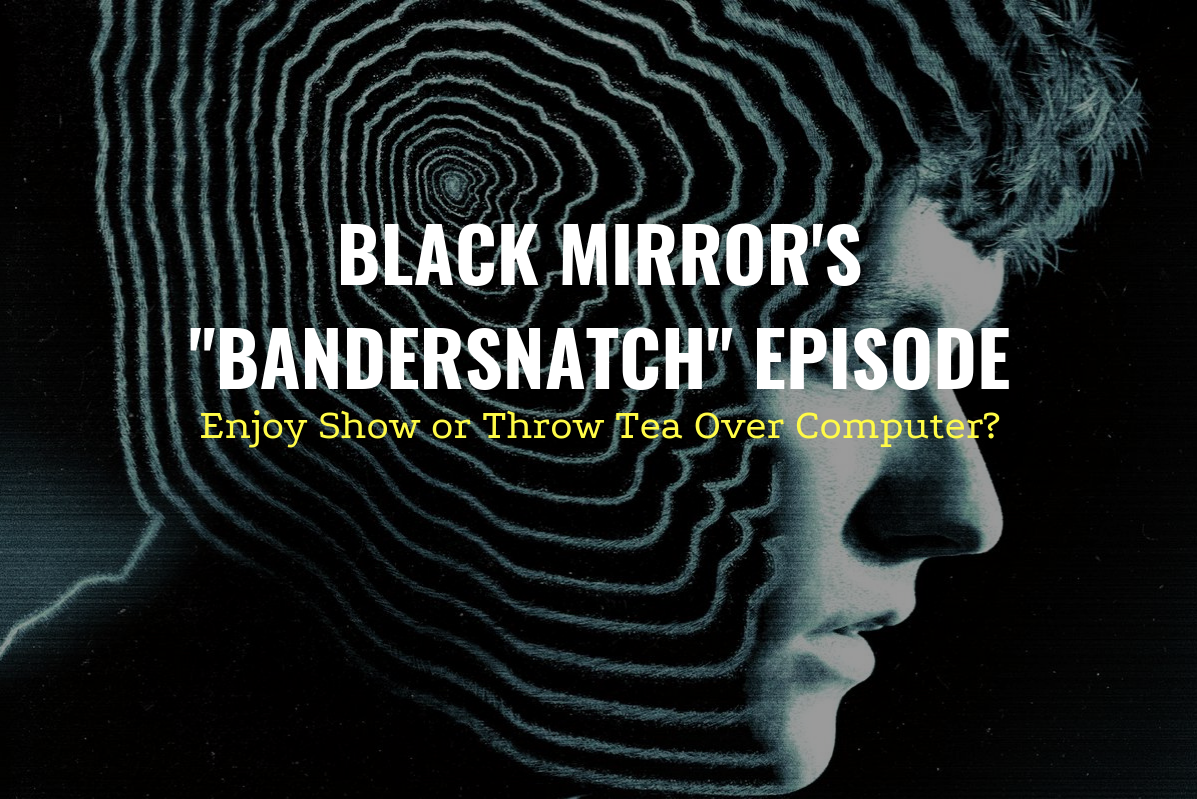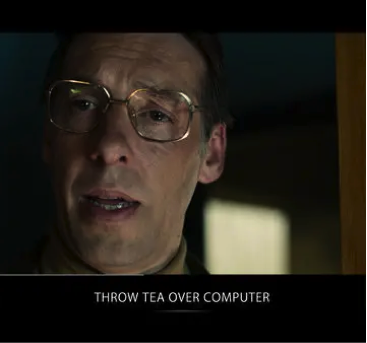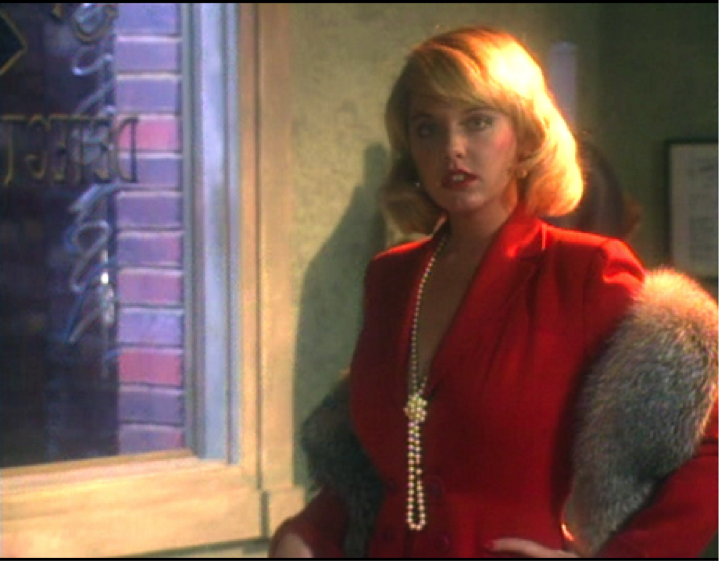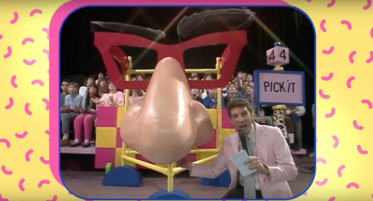
Prompt Images
Black Mirror’s “Bandersnatch” Episode: Enjoy Show or Throw Tea Over Computer?
“Bandersnatch,” the newest episode of Black Mirror, dropped on Netflix at the end of December. But it’s taken Josh and Jesse two months to process it. Read along as they try to make sense of this unique viewing experience together.
Jesse: Okay, let me just start with my overall impressions of Bandersnatch. I liked it, but I didn’t love it. I wanted to love it because I love Black Mirror as a series. I get very excited when a new season drops. But “Bandersnatch,” though fun and certainly worth watching, didn’t do much more than entertain me for a bit.
I’ve been thinking long and hard about why I don’t love it. What I keep coming back to is that I wasn’t moved emotionally or stretched mentally during the episode. I had no attachment to the protagonist, or his dad who looks an awful lot like the boss from Office Space.


Josh: Wow! We immediately disagree. I think you’re getting a little too hung up on the glasses type. I think his dad looks like a weird love child between Andy Samberg and Joe Lo Truglio. I should mention I’ve been binging Brooklyn 99 recently. That would be about as weird of a love child as I can think of, and I spend A LOT of time thinking about these things.
In terms of “Bandersnatch,” I would also say it fit into the like-not-love-friend-zone for me too. Specifically I would probably slot it in at No. 16 or 17 in my all time Black Mirror rankings. I had similar problems with it that you did, which was general apathy towards all the characters and most of the plots.
I wonder what you thought of the “choose your own adventure” aspect of Bandersnatch, which was clearly the thing that set it apart from pretty much anything I’ve ever seen. Did you find it effective, distracting, fun, worthless, or anything else? Did you think it overshadowed the story or fit well with it?
Jesse: That was neat, but not particularly mind-blowing or anything. Obviously we’ve had “choose your own adventure” books since I was a kid/you were pre-zygotic. But even the video version of the “choose your own adventure” has been done before. These are called video games. And lest you argue they aren’t live action, allow me to point you a slew of short lived early live-action video games like Mad Dog McCree and Who Shot Johnny Rock? These were played on LASER DISCS. Are you even old enough to remember Laser Discs, Josh?

Electronic Gaming Monthly gave Who Shot Johnny Rock a 4.8 out of 10! Sign me up!
But beyond being derivative, I was also not convinced through much of the film that my choices mattered all that much. Have you seen the flow chart of the film? I mean none of the decisions you make matter until you get towards the very end. Is this really all that much different than those special editions of movies they release where you can see multiple endings of the film?
How about you? You say you weren’t compelled by these characters. But could you see this format working for other stories?
Josh: I think a more compelling story may have hooked me into the choices more. There were two big problems I had with the choices. One of which is on me, and the other which is on Bandersnatch. I’ll start with my own problems (lies down on the couch and rambles)…
I spent entirely too much time wondering if I was getting the same product as you or anyone or EVERYONE else. It was actually crippling in the sense that during one of the minor choices, I never even picked before time ran out, and the show ended up making the choice for me. I had a really hard time psychologically with choosing, and I am not like that in real life, which is why you and I once dined on $60 tapas.
I wondered if I was doing it right. I dreaded I would be missing some big arcs and moments. I worried that my experience wouldn’t be the universal one. It sounds insane to say this, but making these decisions really lessened my enjoyment of it. My experience was the exact conundrum explained in The Paradox of Choice. There was even a point where I stopped picking the things I wanted and started picking randomly. Maybe I should actually see a real shrink.
Okay. On to the problems with “Bandersnatch.” Like the flow chart demonstrates, our picks didn’t end up making much of a difference, plotwise. But emotionally, too. Because I didn’t care if Stefan or Colin went over the balcony, since I had no connection with either of them. Maybe that’s because Black Mirrors are all one-offs, whereas if this had been Breaking Bad or True Detective, the choices would have come with higher stakes.
And to me, that’s a big piece of why this could be cool. Imagine getting to make big decisions in shows where you’ve seen so much of the story play out already, or where you feel like you know the characters and have expectations for their behavior. I don’t want to spoil things for anyone out there, but if you’ve seen the last season of Breaking Bad, you can understand the great moments the viewer could have manipulated differently.
Also, you’re the first person to ever insult me by calling my pre-zygotic. Huzzah!
Another question for you: Do you think you’d ever go back and try “Bandersnatch” again, aiming for different outcomes?
Jesse: Honestly, probably not. I almost never rewatch shows or movies. I feel as though it’d be a bit of a slog to go through the motions again for 60-90 minutes just to have the outcome change from “the main character being imprisoned with no game” to *looks down at flowchart* — “the main character being imprisoned with no game.”
That said, your idea of applying this model to other series where I was more invested in the characters is very intriguing. (SPOILER ALERTS) What if you could choose to keep Stringer Bell alive in Season 3 of The Wire? Or stop Ross from “cheating” on Rachel? Or, better yet, stop you from taking me to the most expensive tapas place in the continental U.S.!
But jokes aside, I’d consider watching an entire series that provided a “choose your own adventure” experience alongside well developed characters and a killer plot(s).
Josh: Jesse, THEY WERE ON A BREAK!! Get over it.
Maybe, in the end, “choose your own adventure” is a fun gimmick that is less fun in implementation. People definitely want to be in control of the narrative, but like you said at the beginning, that’s what we have video games for. A great example of that is Red Dead Redemption 2, which also allows the gamer to explore virtual lands and or complete game tasks. I’ve never played RDR2 but I hear it is a banger AF. Or something like that. Flame emoji. Laser disc.
It seems like a simple conclusion, but philosopher William Occam suggests that sometimes the simplest solutions are more correct than the more complicated ones. In the end, maybe TV is just better as TV. Boom. You got Occam’s Razored.
Jesse: Yes, I couldn’t have said it better myself. TV is just better as TV.
In any case, I feel like we should probably wrap this up. What do you say, Josh?

Josh: I was hoping just to throw tea on you.



